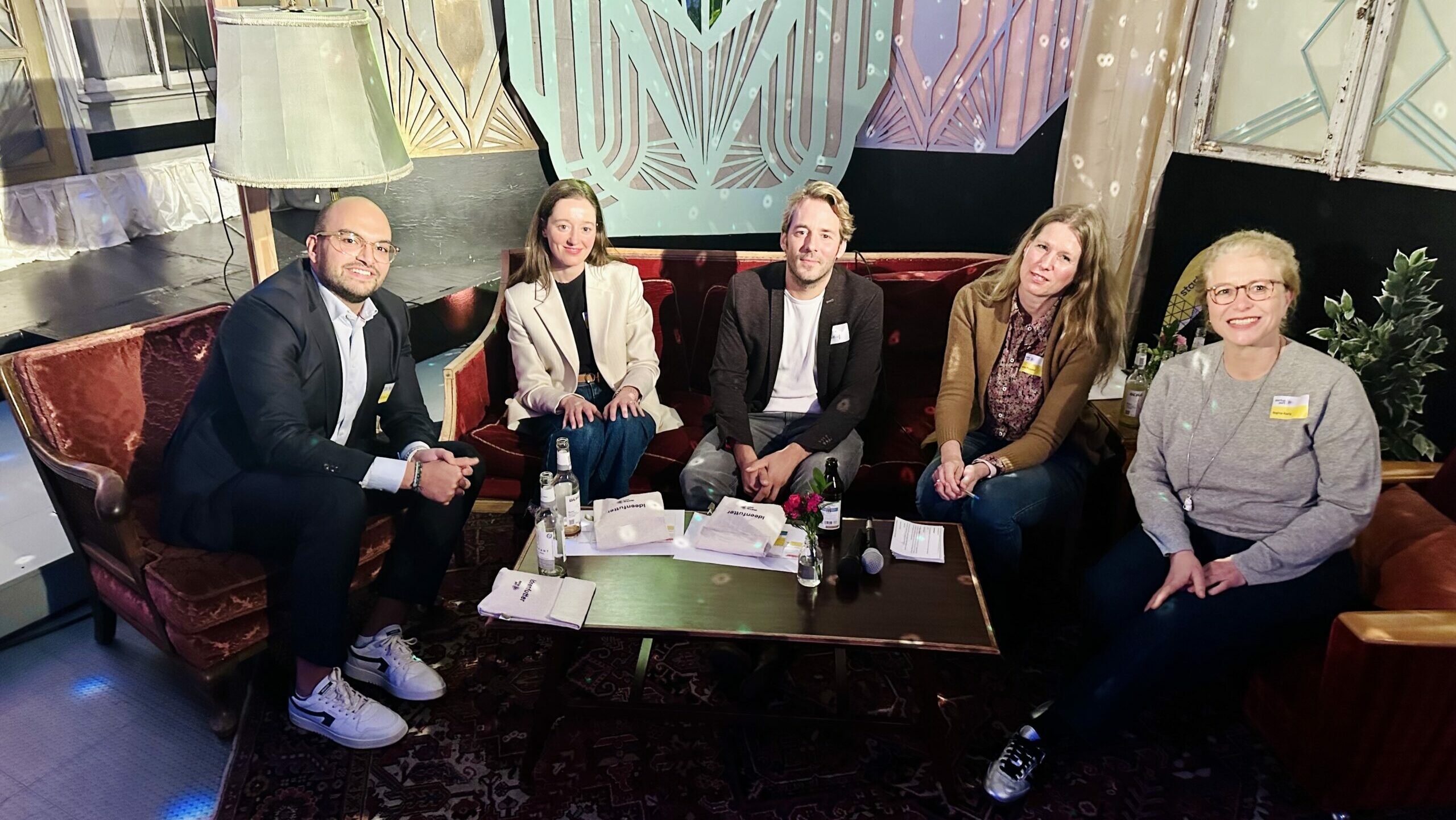As part of the Startup Port Lounge, experts met on November 5 for the panel discussion “Idea theft – when and how must innovations be protected?” at JUPITER at the main station. There is no one-size-fits-all solution, but a wealth of clever approaches were unveiled.
There is great concern in the start-up world about protecting ideas. But how can innovations be protected effectively and when is the right time to do so? Experts from various fields came together at the Startup Port Lounge panel discussion “Idea theft – when and how do innovations need to be protected?” to shed some light on the subject. The discussion offered valuable insights into the challenges and strategies involved in founding a startup, particularly in the area of intellectual property (IP) and team dynamics. The speakers shared their practical experiences on how to protect IP, the importance of a strong team and what factors are crucial for the success of a startup.
The right time for protective measures
Regina Radig-Neuber, specialist for IP management at the UKE, emphasized the urgency of protecting innovations: “You have to protect your innovations – in good time, before others have the chance to take advantage of them.” This is particularly critical in fast-moving industries such as medical technology, as Dr. Fabian Kording, Co-Founder and CEO of northh medical GmbH, explained: “Patents are essential here to secure capital and prevent imitations.”
Protection strategies depending on the industry
While patents are often used in the field of hardware, trade secrets or cloud solutions can be more effective in software development. Lena Weirauch from aiomatic illustrated this using the example of her company, which operates its software exclusively in the cloud to prevent direct code access.
The role of NDAs and legal tools
NDAs are a common instrument in the start-up world, but Lena Weirauch warned against overestimating them: “In the beginning, we were very afraid of idea theft. But NDAs can often be a barrier and don’t always offer the security we hoped for,” explained the founder and regional spokesperson for the Startup Association in Hamburg. Instead, companies should strive for a combination of legal, organizational and technical measures.
Importance of team dynamics and internal agreements
Both Lena Weirauch and Dr. Kording emphasized how essential transparent agreements within the start-up are. These help to avoid conflicts and ensure that all team members are pulling in the same direction.
Strategic use of legal measures
Legal measures such as NDAs, non-competition clauses and partnership agreements are valuable but should be embedded in a more comprehensive strategy that also includes organizational and technical protective measures. Lena pointed out that it is important, for example, to collect the company’s internal knowledge in a knowledge database in order to preserve and secure the know-how within the company, even if employees leave the company.
Investors and dealing with IP protection
Dealing with investors is a challenge, especially when it comes to the issue of IP protection. Overly cautious behavior, such as demanding non-disclosure agreements (NDAs) in every investment round, can be counterproductive and deter potential investors. Nabil el Berr, lawyer and Managing Director of Indicium Technologies GmbH, explained that transparency about the startup’s USPs is often more important than excessive secrecy through NDAs. Openness about the startup’s core competencies and unique selling points (USPs) is often necessary in order to build trust with investors and demonstrate the team’s commitment to the business idea.
Patents vs. implementation
Nabil el Berr emphasized that “great ideas are nothing without implementation.” While patents and legal protections are important, they do not replace the need for a clear business plan, a good marketing strategy and effective customer acquisition. Investors value a team’s ability to successfully bring the product to market and generate revenue, rather than the mere idea itself.
Nabil emphasized that a mixture of legal, technical and organizational measures is the be-all and end-all. “Anyone who doesn’t think in all three dimensions is playing Russian roulette with their business idea.” A clever combination of these elements often determines success or failure.
Conclusion
The discussion made it clear that protecting innovations is a multifaceted challenge that requires a balanced strategy. Start-ups should take protective measures at an early stage while remaining flexible enough to position their business ideas effectively on the market.
Concluding remark
The event offered extensive insights and practical advice that can help startups protect their innovations while remaining competitive. Networking and utilizing available resources, such as startup hubs and university facilities, were highlighted as essential. By exchanging ideas with experienced founders, legal advisors and IP experts, young companies can recognize and avoid pitfalls at an early stage. Startup Port has once again proven that it is not just about founding, but also about the sustainable protection and growth of young companies.

